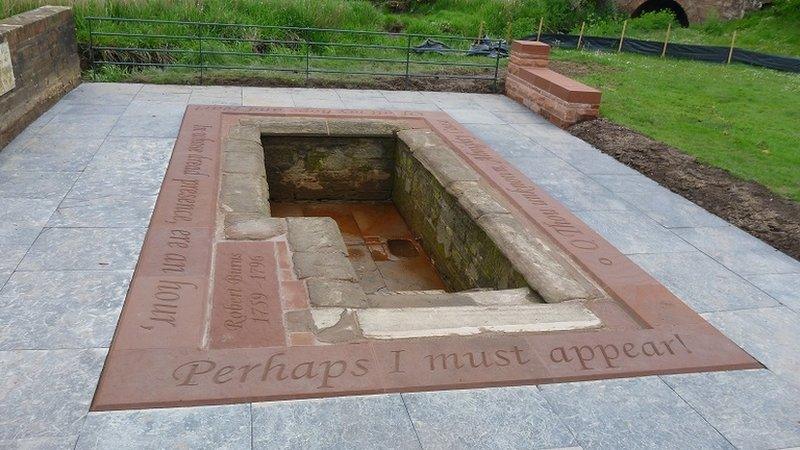Robert Burns' Brow Well bathing spot bridge crumbles
- Published
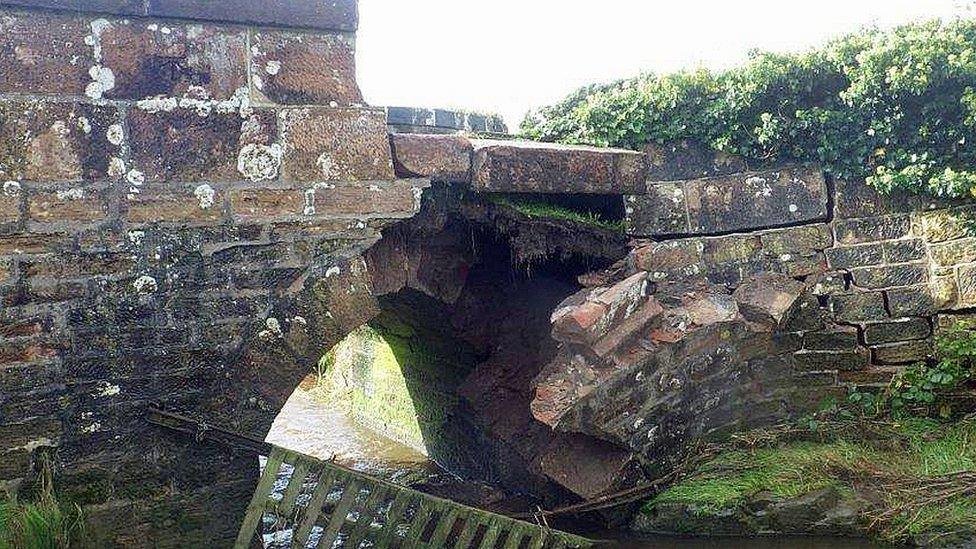
The road has been shut due to the damaged bridge near Brow Well
A bridge has partially collapsed near a spot where Robert Burns bathed and drank the waters before he died.
It has forced the closure of the B725 at Brow Well near Ruthwell in Dumfries and Galloway.
The local authority said the route would remain shut until repairs could be carried out.
A first inspection of the bridge has found damage both to the top and underside of the structure close to the historic site.
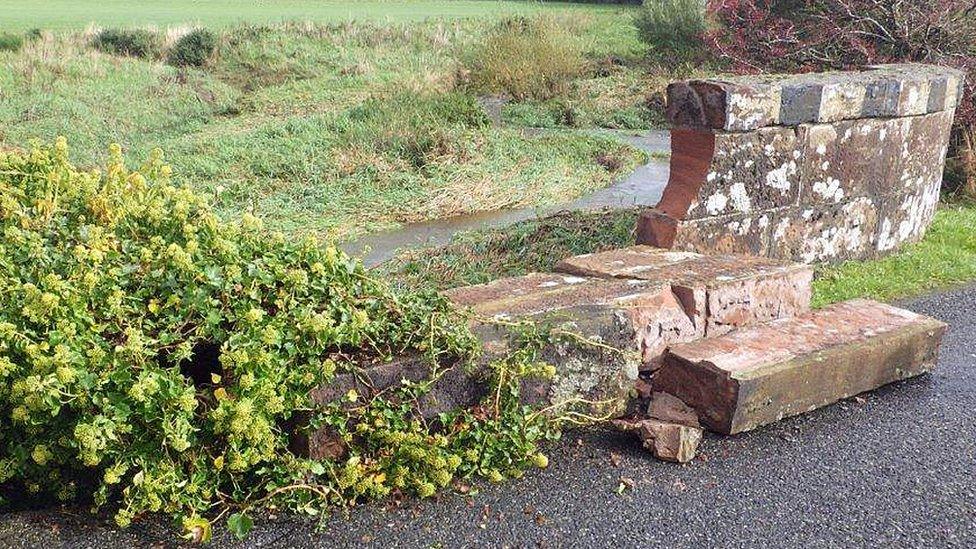
The site is close to a spot where Robert Burns bathed and drank the waters
In the 1700s the Brow Well was renowned for its healing qualities with residents of Dumfries regularly "taking the waters".
Burns himself visited in 1796 but it failed to improve his condition and he died in July that year.
The Dumfries and Galloway site remains a popular spot for fans of the poet's work to visit.
It was recently upgraded with a new surround put in place engraved with poetry, a new path and interpretation panel.
Why did Burns go to the well?
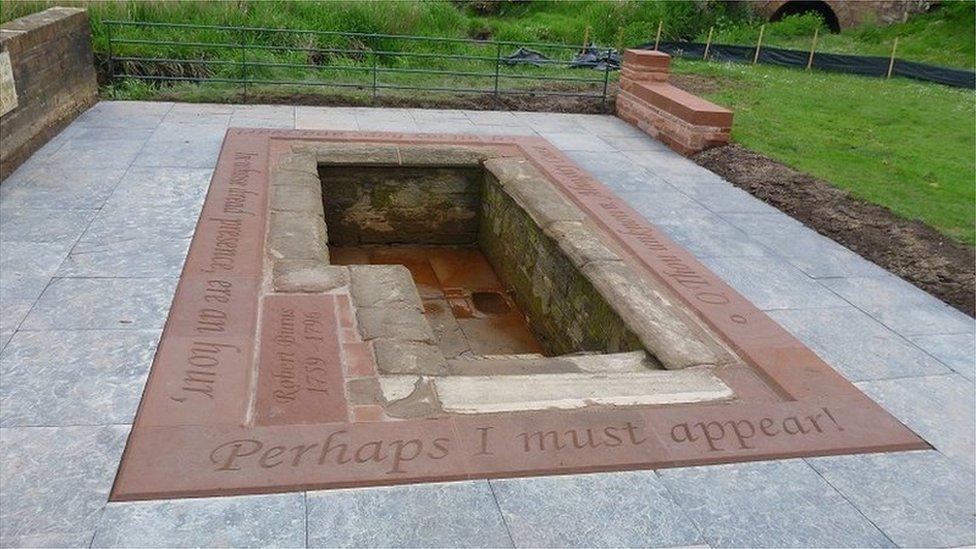
The site was recently upgraded to enhance it as a visitor attraction
Brow Well is a spring rich in iron and other minerals which were believed to have healing properties.
Drinking the water and bathing in the Solway were thought to improve health.
In the final year of his life Burns was advised to try the cure by his doctor and drank the "foul tasting water from an iron cup attached to the well".
He also waded chest deep into the cold tidal waters.
He died a matter of days later - on 21 July 1796 - and enthusiasts gather at the well for a service in his honour on that date every year.
Source: Future Museum South West Scotland
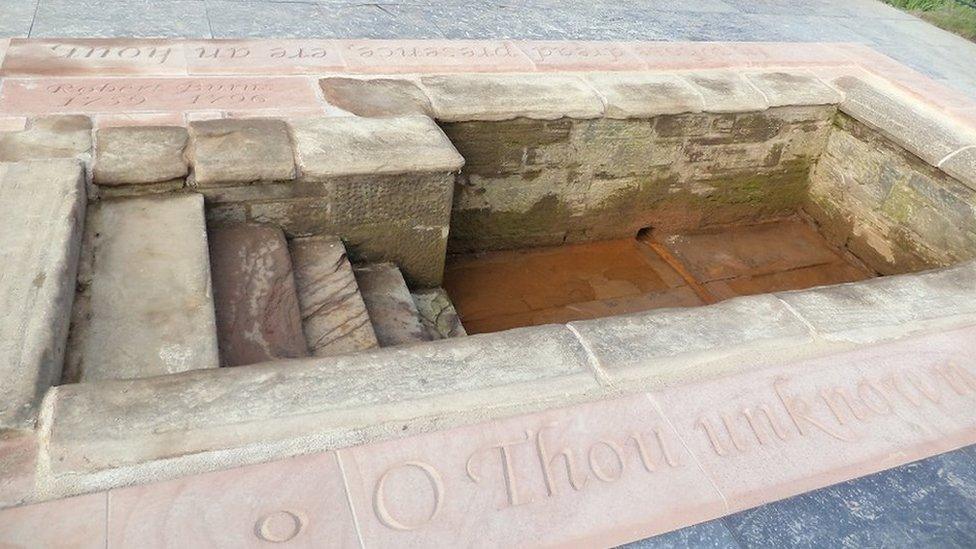
The waters of the well were widely believed to have healing qualities in the 1700s
- Published9 July 2016
